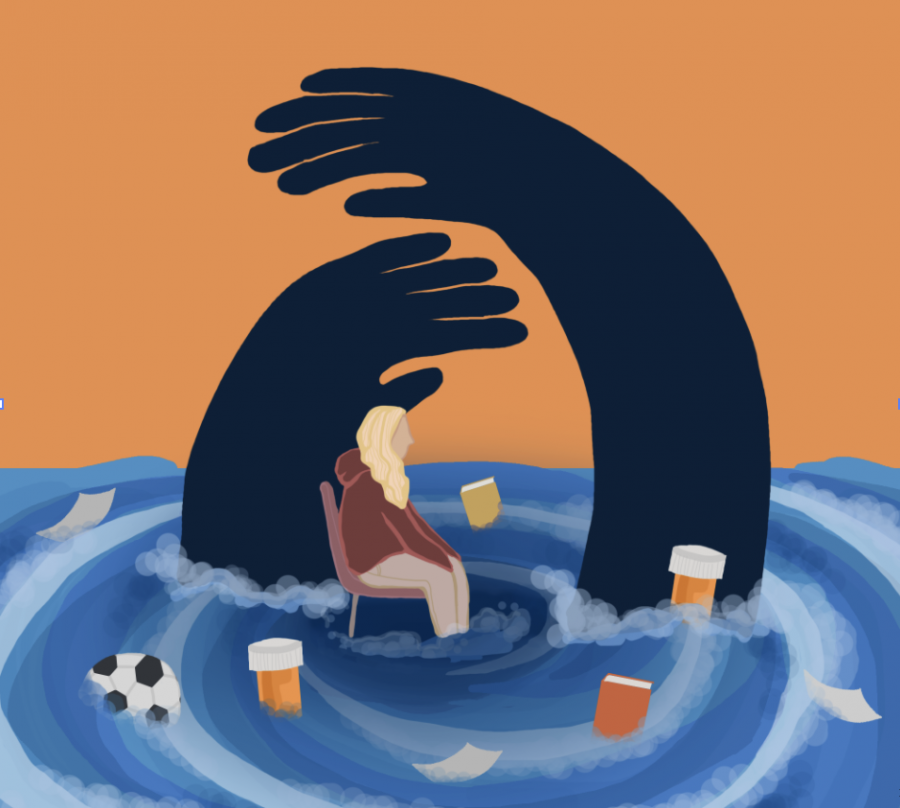Staff member’s first-hand account of anxiety
When I turned 16, I got a car — something every teenager looks forward to. One would imagine I was jumping with excitement and fantasizing about where I would go with my newfound freedom.
Instead, I was anxious. All I thought about was how much money my parents spent and the consequences if I crashed.
Anxiety is a common phenomenon that affects teenagers and young adults around the world. School can be extremely stressful, especially with many Grady students taking up to seven Advanced Placement classes in a year. Also, there are extracurricular activities: sports, clubs and rehearsals that compromise students’ time after school.
It has been debated whether anxiety is actually a mental disorder. While it’s common for students to get a little anxious over an important test or presentation, some students are stuck in a never-ending cycle of stress. This is when anxiety disorders come into play.
Anxiety disorders come in many different forms and types, and each person who suffers experiences anxiety differently. I have multiple anxiety disorders, like social and generalized anxiety disorders. Unfortunately, I can only recall three instances in the past two years when I was stress-free.
Symptoms of my anxiety started at an early age. In first grade, I had my first panic attack when my mom accidentally threw out a coloring assignment that was due the next day. I only calmed down when she promised she would take off work and explain to my teacher what had happened. I was 7 years old.
In third grade, I was so anxious over spelling tests that I couldn’t sleep the night before. At that point, I started going to a therapist.
Throughout middle school, I managed to get some of my anxiety under control, but in high school, things have gotten progressively worse. Despite the stress, school is something I have always enjoyed. I love learning new things and taking on tough challenges. However, my anxiety makes this difficult.
From the outside, I usually look calm and collected, and unless you know me really well, you wouldn’t know what is always going on inside my head.
Everything I have to do is constantly swirling in my head: tests, assignments that aren’t even due for a few weeks and after-school activities. Sometimes in therapy, I become stressed thinking about the amount of time I am wasting, the time that could be spent on the loads of work I have due the next day. Even in the summer, the AP summer work is in the back of my head.
When it comes to tests, I can’t sleep unless I know I studied hard enough, which can take up to three hours. When I finally fall asleep, everything I finished that day goes away in my head, but then the next day’s activities pop up.
Along with this, things that I know I shouldn’t be stressing over captivate my attention. Things like, ‘What if I’m late to school tomorrow?’ or ‘What if my teacher that I need to ask a question to isn’t there tomorrow?’
Anxiety can have physical effects as well. My anxiety causes me to experience sharp pains in my chest, migraines, nausea and hyperventilation.
I also have major test anxiety, despite the fact that I tend to perform well on tests at school. Even if I study for hours and convince myself I know the material, I still second guess myself. My classmates will say things like, “Why are you reacting like this? I know you studied,” or “It’s not that big of a deal.”
What they don’t realize is that I say those exact messages to myself. Over the years, I have improved at managing my anxiety, but certain situations trigger it.
People with anxiety have constant internal battles with themselves. If you see someone experiencing extreme anxiety, don’t make comments about how they should calm down —instead, help them through it. Many people at Grady have anxiety and experience some of the same things I do, while some have it a lot worse. We need to recognize that this a major problem among students.






